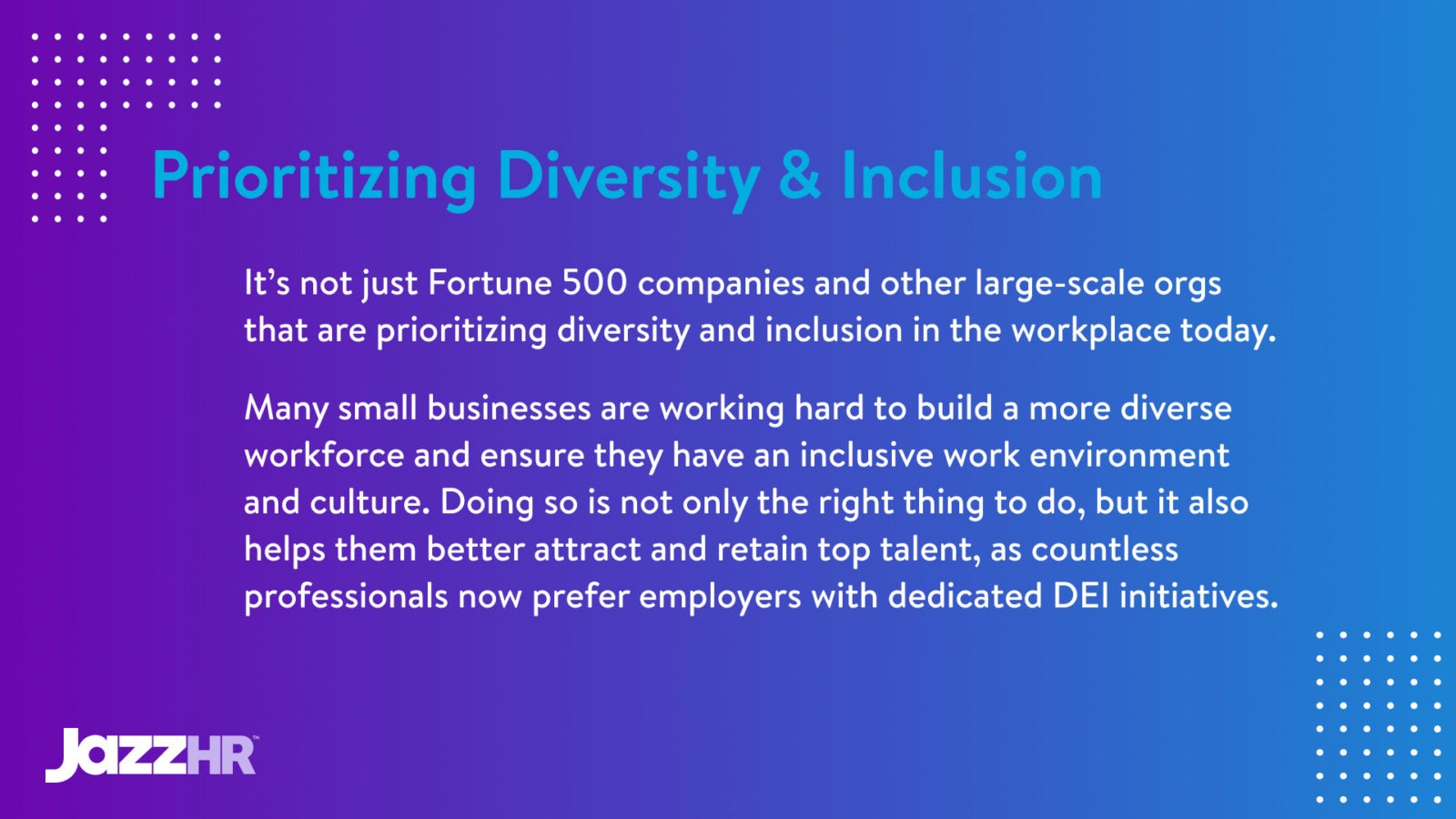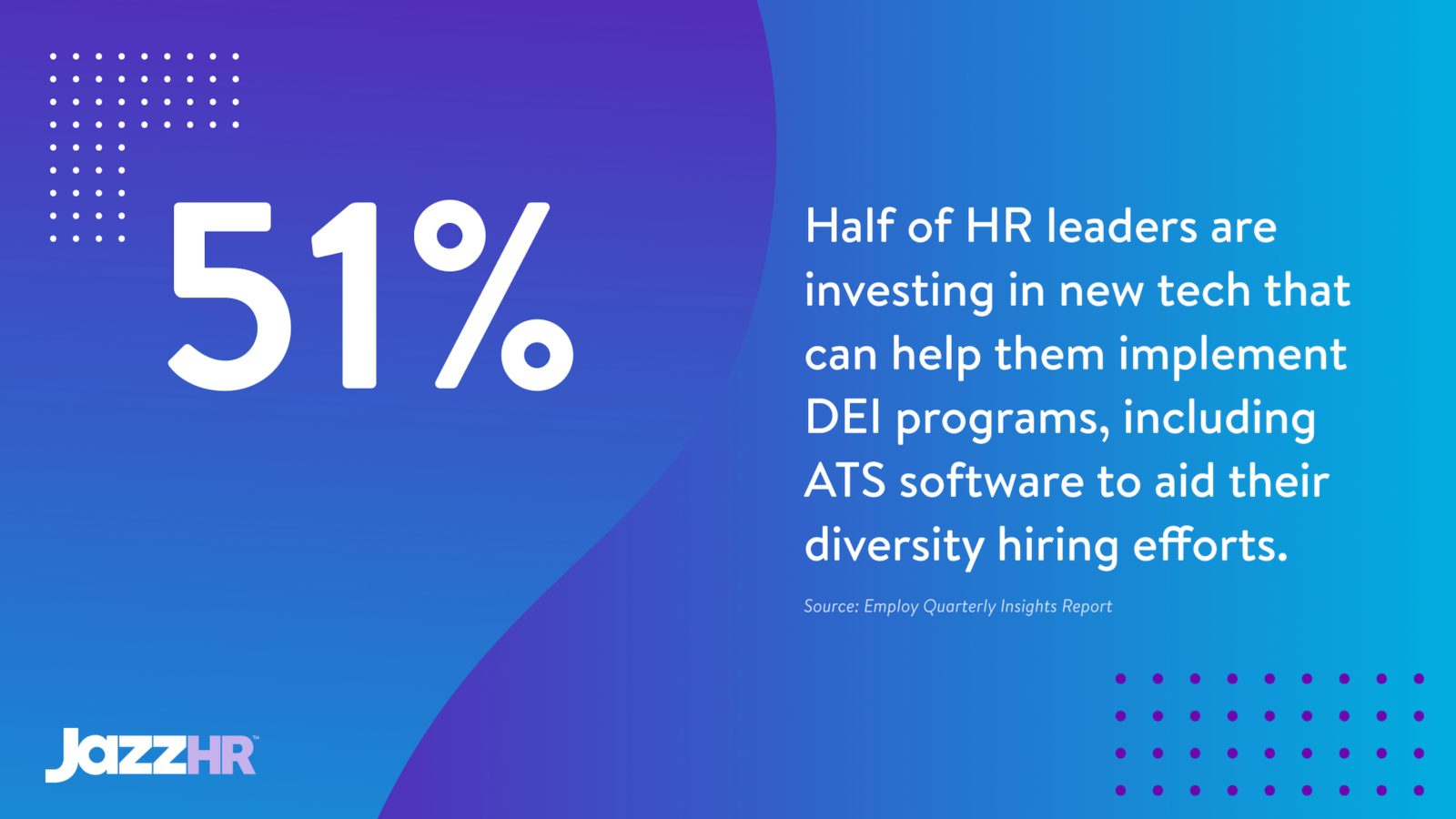Guest blog by Arslan Hassan
Thankfully, few business leaders today need to be convinced that prioritizing a culture of diversity, equity, and inclusion at their companies is a worthwhile endeavor. That said, many executives and organizational decision-makers have yet to implement diversity training in the workplace — a critical component that’s necessary to drive meaningful, long-term success with various DEI efforts.
It can’t simply fall on your human resources team to take the lead with improving diversity in the workplace and driving employee engagement centered around creating an inclusive culture.
- Rather, your C-suite must be the ones to own and create action plans around DEI initiatives.
And this work starts with crafting diversity training programs that ultimately build a sense of belonging for everyone at their organizations and make employees feel seen, heard, and respected.
What is diversity training? A breakdown
Diversity training is the act of informing employees and members of business on the importance of accepting and working alongside individuals from different races, sexual orientations, gender identities, ages, and backgrounds. In short, it teaches employees the importance of inclusion, diversity and equal employment opportunities and creates a welcoming environment for new hiring.
Nowadays, companies are pulling strings to introduce diversity programs — the in-office and mobile learning variety — and conduct extensive diversity training in the workplace to ensure employees that diversity and equality are a priority to their org. Not only does it serve as an effective training tool for internal interactions, but it also aids with customer and vendor communications as well.
Why diversity training so critical today
That’s a fairly high-level breakdown of diversity training. Now, it’s worth exploring its increasing importance for orgs of all sizes — including SMBs. Some of the biggest pros of DEI training include:
Developing a welcoming workplace for recruits
Starting your first day at a new company can be stressful and nerve-wracking. (Especially since you have no idea what to expect from the environment.) Diversity training can help prepare employees. This helps in welcoming recruits with diverse backgrounds into the business and promotes a positive company culture.
- One free of racial biases or any discrimination of any kind.
All in all, implementing various types of diversity training during the onboarding process for new hires and on an ongoing basis for employees (e.g., monthly sessions) not only boosts the your workers’ self-confidence, but it also establishes a sense of trust in the company’s management and motivates them to perform at their best. Something every exec wants to see from the workforce today.
Improving employee collaboration and innovation
Diversity training also emphasizes being considerate of others’ opinions and viewpoints. This increases the cooperation between employees on work tasks and encourages teamwork.
- Team leaders and people managers are also educated to value each member so they are aware of their contribution and significance to the team.
When workers appreciate and respect each other’s strengths through differences in thinking, ideas, and contribution, it transforms a workplace culture into an inclusive setting. Moreover, it also allows them to feel more free to share contrasting opinions and avoid allowing bias to creep into their work.
“By breaking up workplace homogeneity, you can allow your employees to become more aware of their own potential biases — entrenched ways of thinking that can otherwise blind them to key information and even lead them to make errors in decision-making processes,” business experts David Rock and Heidi Grant recently wrote for Harvard Business Review.
Attracting best-in-class, highly qualified talent
Diversity training promotes a positive company culture at all levels of a company, which boosts their reputation and invites job seekers. A company looking to recruit new employees must pay close attention to its perceived workplace environment from former and existing employees.
If, by chance, a potential employee hears negative comments regarding your workplace culture, they will immediately withdraw their application, since no one enjoys working at a business that does not care for its workforce’s well-being.
When your company is known to have an inclusive workplace where workers from all backgrounds feel appreciated and recognized for their efforts, it will draw in more bright job seekers to your org.
This improves brand reputation and leaves a better impression on potential hires.
Encouraging idea sharing from all employees
A major benefit of diversity training in an organization is that it allows the free flow of suggestions, ideas, and opinions from workers at any level in the business hierarchy.
This allows continuing dialogue between employees and establishes good work relationships. It strengthens employees’ trust in the company’s management and increases job satisfaction.
- For example, if your company is planning to decrease its carbon footprint and cut down on overall paper waste, opening up the discussion to employees on how to make this transition easier brings in an immense amount of ideas and suggestions.
When a worker suggests going digital and installing editing software or PDF to DOC converter on their systems, it allows them to adapt to the change efficiently.
Preventing any biased or uninformed behavior
Biased judgment and unfair treatment are core reasons why many employees decrease their efforts or quit working for an organization. Diversity training shuts its doors to biased behavior and promotes equal treatment for all its employees at every level.
- From staff to management, each member is educated on how to pass on clear and open-minded decisions so everyone feels part of the team in the room.
While these training programs are not new, businesses are discussing new methods to raise awareness and inform employees on how to converse with individuals of different backgrounds.
Interactive videos, group activities, and other techniques are used to teach employees about concepts such as cultural competency, unconscious bias, and civility. These help employees in applying their knowledge and understanding in real-world situations and collaborate with employees and customers of other cultures and ethnicity.
Similarly, it educates workers to be better communicators and resolve conflicts triggered by masked attitudes based on social stereotypes. Managers and leaders are known to form better role models when they make decisions that are unbiased and fair.
Cultivating a culture of inclusion and equity
Inclusion and diversity go hand-in-hand to form a friendly work culture for any organization. Inclusion means to ensure individuals from underrepresented groups are appreciated and have opportunities for career advancements where they can take on management roles.
- Diversity training induces inclusive thinking within a business, which leads to a more productive and welcoming workplace environment for everyone.
What’s more, employees are also educated on workplace sensitivity, which teaches them to be aware of other’s comfort levels to not cause any unintentional offense.
Often, people are unfamiliar with understanding behavioral changes that might be caused by insensitive comments. Thus, leaders and employees need to develop skills that interpret such situations better and nurture safe and convivial teamwork.
Being sensitive to one’s attitude prevents unnecessary conflicts and discrimination.
Getting started with diversity training
Organizations in the 21st century that wish to pursue a competitive edge in this evolving market must create a company culture that attracts the best workforce. That means realizing a more diverse workforce that includes individuals from an array of backgrounds and with a variety of unique experiences and perspectives — the combination of which leads to greater innovation and output.
At the end of the day, effective diversity awareness training enables employees to grow accepting and hospitable of everyone and removes other barriers to diversity and inclusion.
Looking to enhance your diversity recruiting and hiring? The first step is to ensure you have the right TA tech. Learn how JazzHR can help your SMB better attract and engage diverse talent.









